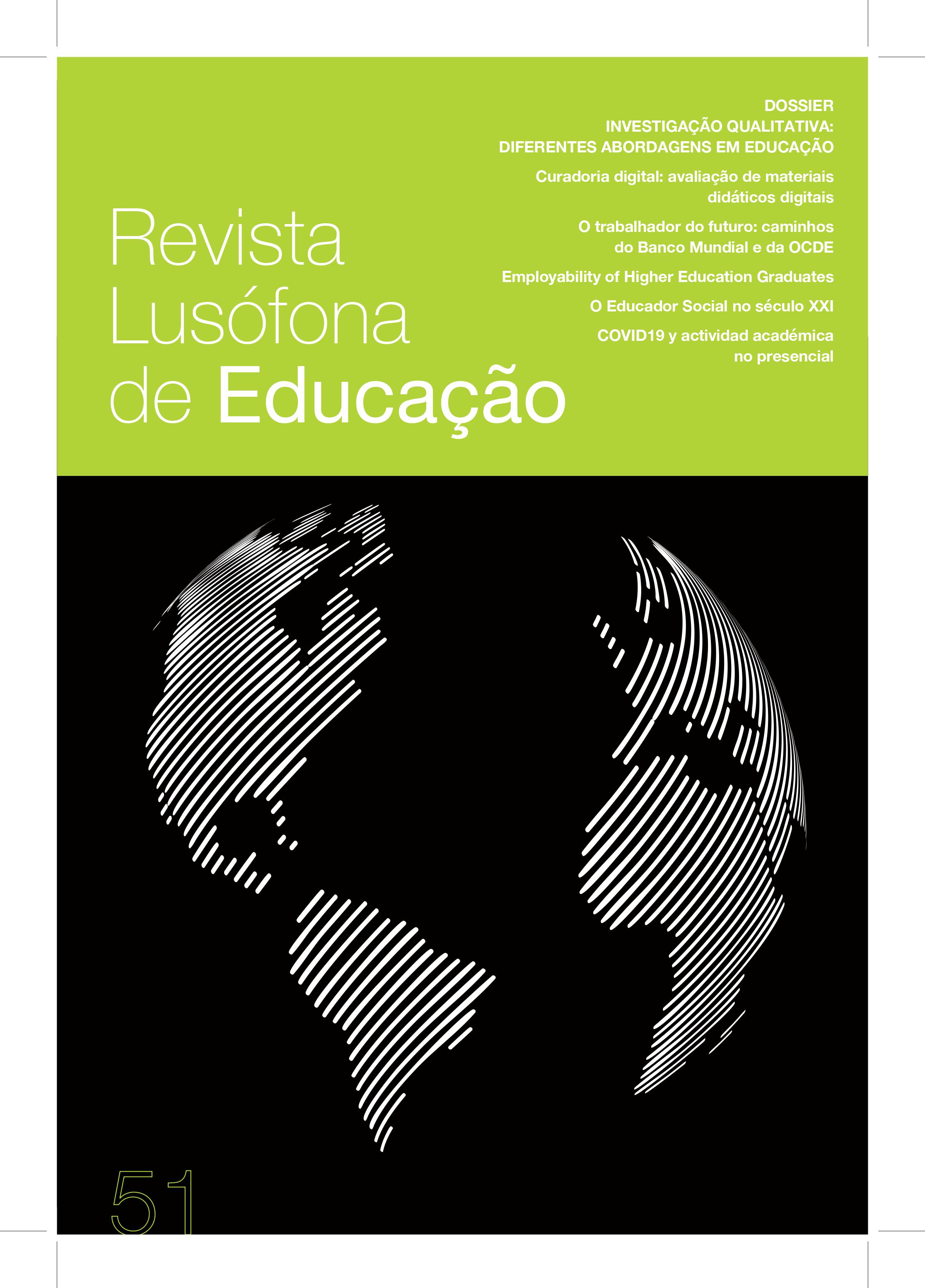Employability of higher education graduates: reflections and pedagogical implications
Resumo
The changes that have occurred in higher education and labour market in recent years highlight the need for an in-depth reflection on current prevailing educational paradigms, and their adequacy in responding to the demands of today’s society. One of the topics that has gained particular attention is related with graduates’ employment rates, which represents one current criteria used to assess the quality of higher education institutions and courses. In this context, this article aims to reflect on current knowledge about graduates’ employability. Considering various empirical works and research lines developed over recent years, we propose a set of four premises in an effort to lend structure to some pedagogical and curricular implications for higher education institutions: (i) the risk of the “one-dimensional prioritisation” of technical skills; (ii) career management skills as a catalyst for employability; (iii) graduates and their transformative potential within organizations; (iv) the implausibility of a single model for promoting employability. To conclude, it is argued that the education of future graduates should not limit itself to the present. Pedagogical practices of teaching and learning must promote the continued construction of knowledge and skills, practical experience and work placements in organizations with different structures within the community.
Keywords: higher education; graduates; employability; pedagogical implications
Downloads
- Os autores e as autoras conservam os direitos de autor, sem quaisquer honorários, e concedem à revista o direito de primeira publicação, com o trabalho simultaneamente licenciado sob a Licença Creative Commons CC-BY - Atribuição 4.0 Internacional, a qual permite que outros compartilhem (copiar e redistribuir o material em qualquer suporte ou formato) e adaptem (remixar, transformar e criar a partir do material para qualquer fim, mesmo que comercial), com reconhecimento de autoria e publicação inicial na RLE;
- Os autores e autoras têm autorização para assumir contratos adicionais separadamente para distribuição não-exclusiva da versão do trabalho publicada nesta revista (ex.: depositar em repositório institucional ou como capítulo de livro), com reconhecimento de autoria e publicação inicial na RLE;
- Os autores e autoras têm permissão e são estimulado/as a publicar e distribuir o seu trabalho online (ex.: em repositórios institucionais ou na sua página pessoal), já que isso pode aumentar o impacto e a citação do trabalho publicado (Veja O Efeito do Acesso Livre).








